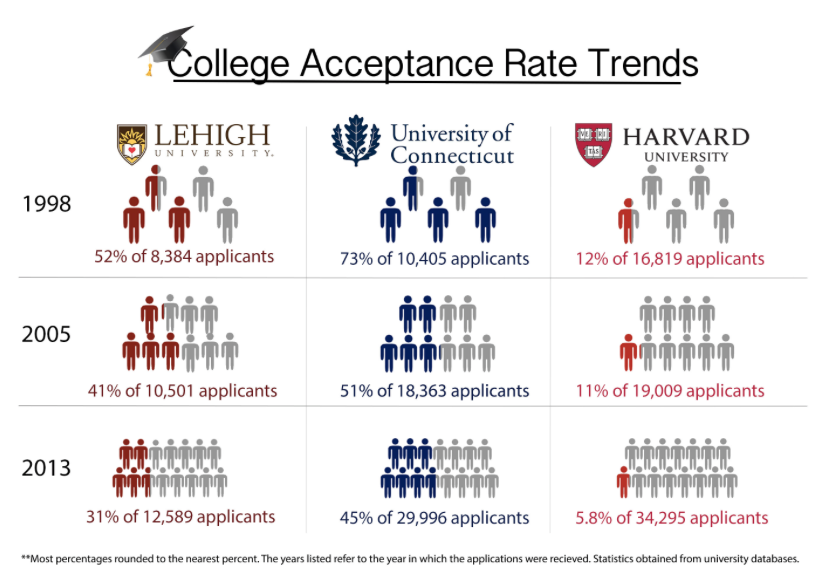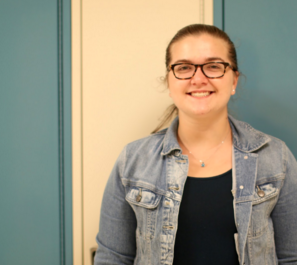College acceptance rates are hitting all-time lows. In fact, Stanford University reflected this national trend when it set the record for the lowest acceptance rate ever last year: it admitted just 5.1 percent of applicants for the Class of 2018.
As intimidating as the statistics might seem, there are many complicated factors playing into the numbers.
A recent New York Times article connected the downward trend to the expanding world of the internet and the Common Application.
Students use the online Common Application which encourages them to send out multiple applications, while the internet inspires them to consider applying to schools that they might not have found without online research.
Ryder Chasin ’14, who attends Northwestern University in Evanston, IL, was one such student who broke from regional boundaries to apply to a far away school.
“Probably like so many kids growing up in a place as well-educated as Westport, college was always a thought in the back of my mind,” Chasin said. In fact, Chasin first set his sights on Northwestern as early as seventh grade.
However, with larger applicant pools, colleges are forced to reject more students, lowering acceptance and creating more stress.
In the town of Westport, where pressure in the college process is particularly intense, these statistics loom heavily over seniors.
“There’s so much pressure to go to big name schools where you can establish ‘connections’ and such,” Nica Wardell ’15 said.
Eliza Llewellyn ’14, now a student at Harvard University, which accepted only six percent of its 2014 applicants, said she felt the pressure when applying to schools last year.
“I definitely felt stressed about getting into college, especially on days when everyone was talking about an upcoming decision date or was asking about where I had or hadn’t gotten in,” Llewellyn said. “There was just a lot of uncertainty about what schools were even feasible to get into, especially because the admissions process seems so random.”
Indeed, many colleges have had to turn down applicants who are nearly indistinguishable because of the influx in applications.
Rightfully, seniors are overjoyed upon acceptance. “I felt an unbelievable sense of relief, first and foremost, then subsequently a wave of blind excitement and finally a reflective pride — a sort of vindication that the work I put into my projects and my studies paid off in a certifiable, concrete way,” Chasin said.















































